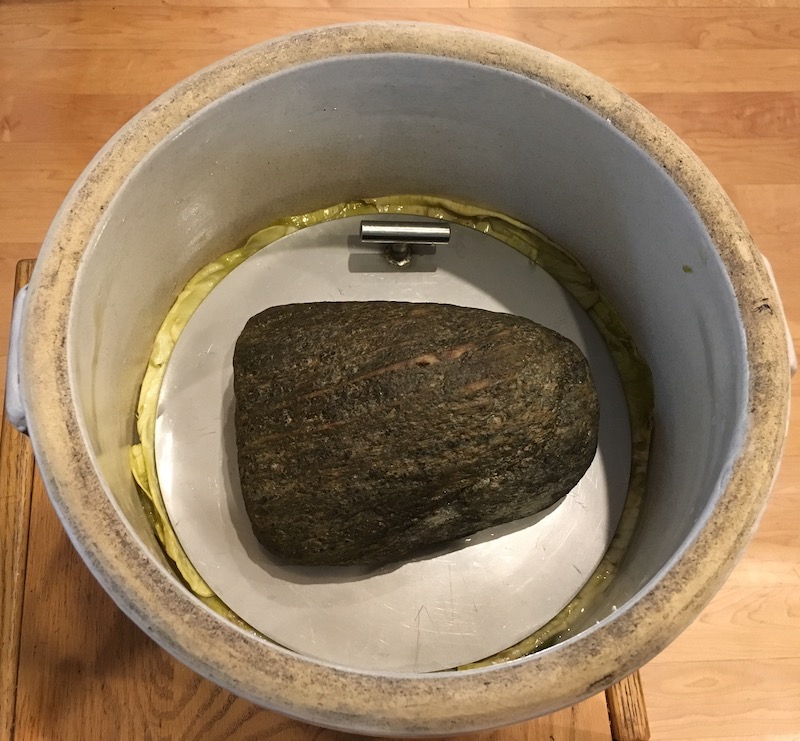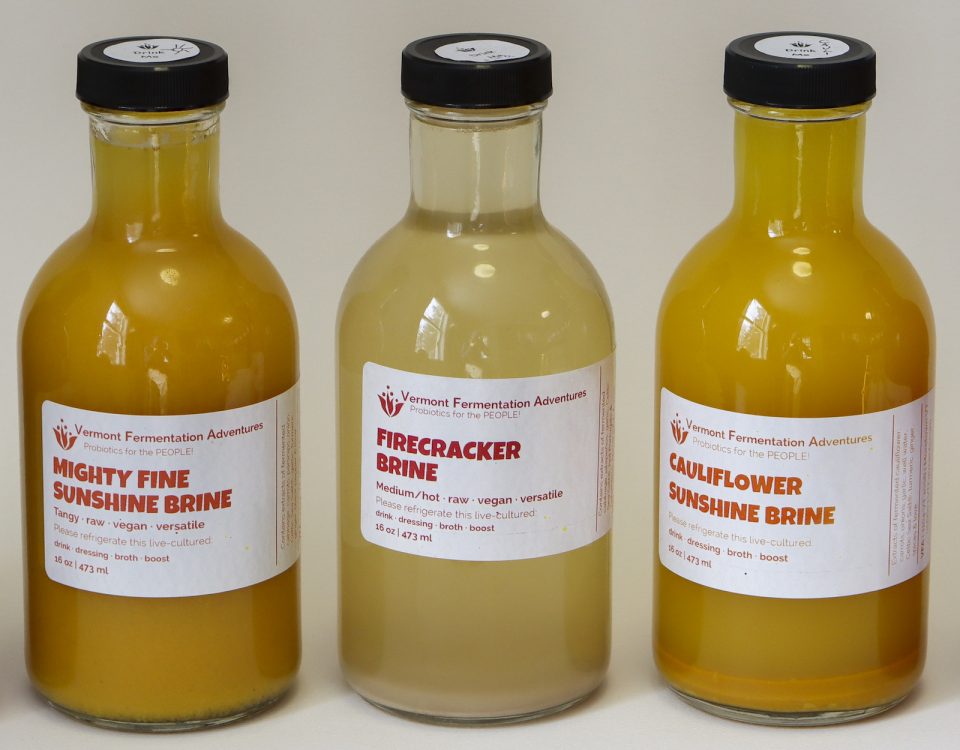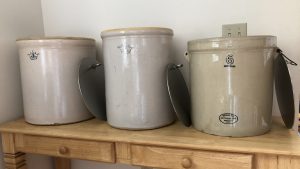
Ugh. Plastic. If I could do away with it entirely, I’d be so happy. If I could get Korean red pepper powder and the pounds of other spices I use without buying their plastic packaging, I would. I hate that much of this plastic waste is killing our planet and choking our oceans. I hate that we are ingesting microplastics much of the time without even realizing it.
And yet. Here we are. As I’m writing this post during COVID times, I do it knowing that our use of plastic and plastic waste continues to skyrocket. I see this in the reusable masks that litter the street and the disposable gloves that have become part of everyday life for many. Just the tip of the plastic iceberg.
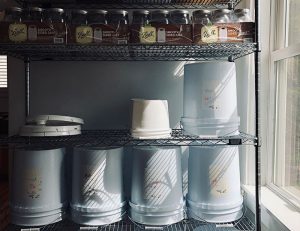 While we can’t avoid plastics at VFA, we put a great deal of thought into any plastic we use. Here it is:
While we can’t avoid plastics at VFA, we put a great deal of thought into any plastic we use. Here it is:
- some raw veg goes into plastic buckets to be portioned and weighed
- all fermented veg combinations are mixed in giant plastic tubs
- I use disposable gloves (nitrile) when mixing veg in the giant plastic tubs
- I strain finished fermented veg, when there’s just too much brine in the crock to get anywhere, through a plastic colander
- sweet tea and kombucha is measured in a clear plastic container
- finished kombucha and fermented veg brine is poured into bottles with a plastic measuring cup
- we use disposable gloves when we package finished veg ferment
- jar and bottle tops are lined with plastisol which prevents the acids in the foods/drinks from reacting with the metal of the top
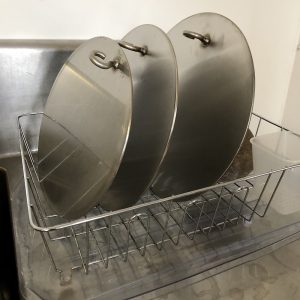
Here’s where we don’t use plastic at VFA:
- veg combinations currently ferment in ceramic crocks, soon they’ll also be in stainless steel barrels
- veg combinations are weighed down with stainless steel plates, ceramic disks and river rocks
- kombucha ferments in glass vessels and infuses (that’s when it gets flavored) in stainless steel
- veg ferments are packed in glass jars
- kombucha is bottled in glass bottles
At VFA, we strive to avoid plastic as much as possible while maintaining a clean, food safe, licensed food processing kitchen.
When we do use plastic, it is for as short a time as possible in the hopes that the acids in the foods— especially the fermenting and fermented foods– have a limited time to degrade the plastics. Our hope is that this choice reduces the amount of microplastics in our foods and drinks.
Paul H was a friend before he died too young, and he used to be in charge of a big fermenting operation in New York. As in many large scale fermentation practices, they used food safe, 55 gallon plastic tubs to ferment their sauerkrauts. There’s a lot that goes into this decision– cost, safety, weight, practicality– and this business decided that this was the right way for them to go. I remember talking with Paul one day about my commitment to avoid plastic as much as I could, opting for the limitation in size and the challenge of the weight of ceramic crocks instead. Paul was not a guy to mince words, and he looked right at me and said, “You are right to stay out of those blue tubs. I know that between the coarseness of the salt and the acid that developed during the fermentation, we had to be putting plastic into our sauerkraut jars. I just didn’t see a way out of it.”
We avoid plastic because we think ferments made in ceramic or stainless taste better and that these vessels are easier on the environment and our eyes.
We avoid plastic because we are trying to be responsible stewards of our environment.
We hope you can taste the difference.
